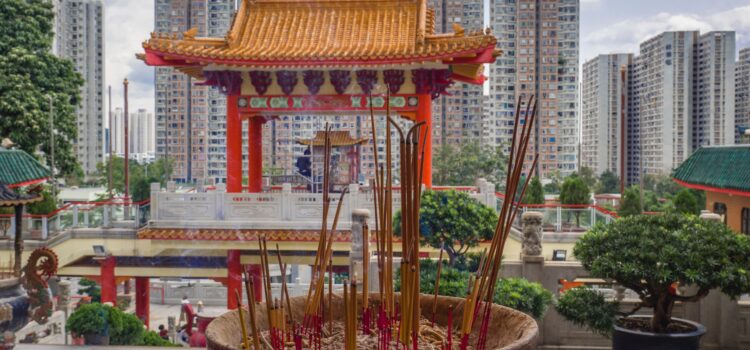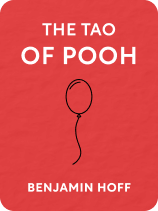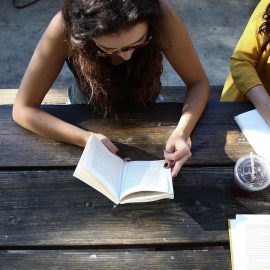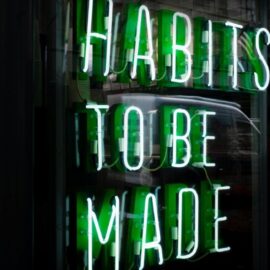

This article is an excerpt from the Shortform book guide to "The Tao of Pooh" by Benjamin Hoff. Shortform has the world's best summaries and analyses of books you should be reading.
Like this article? Sign up for a free trial here .
How can you incorporate Taoist practices into your life? Can the Taoist philosophy influence what you do?
Taoist practices involve changing your mindset. You have to rethink knowledge, all of your qualities, and how you approach life.
Keep reading for more about the Taoist philosophy and Taoist practices for your life.
Taoist Practices to Achieve Wisdom
Wisdom differs from knowledge. The latter strictly deals with information stored in the brain, whereas the former relates to the full scope of understanding beyond mere information. The brain has the capacity to create, store, and compartmentalize information faster and more efficiently than any high-tech computer on the market, but this is not the extent of its power. The brain is capable of so much more, and only using it for knowledge is like using a magic wand to prop open a window.
Lao-tse said, “To attain knowledge, add things every day. To attain wisdom, remove things every day.” To truly start a journey toward wisdom with Taoist practices, you must allow the mind to clear so the avenues to its other powers can be revealed. Therefore, the path to wisdom is the path of nothing.
Think about your last big idea, something others might refer to as a “stroke of genius.” Where did the idea come from? Likely, if you trace it all the way back to the beginning, you’ll find it came from nothing. Most of these revolutionary ideas are not born from laboring over information. They come during moments when you forgot to be thinking about something else, like when you first wake up. But you don’t have to wait for these moments to sneak up on you. You can create them intentionally using the childlike mind.
The Childlike Mind
The goal of the childlike mind is to allow the brain to achieve the same freedom it had when you were curious and observant. As a child, you didn’t know enough to structure the world into knowledge capsules, so you were open to playing and learning with abandon. When you moved into adulthood, you used your experiences, abilities, education, and social conditioning to inform life decisions and explain the world around you. This tendency moved you farther from wisdom.
Many believe that brain development ends with adulthood, but Taoist practices see the final destination of the mind is the independent state of the all-seeing child. This type of mind has been drained of the minute particulars of acquired knowledge and left open to the wisdom of nothing, or the way of the universe. In this state, the mind is filled with light and joy because it is in line with the natural powers of the world.
The saga of Pooh’s adventures with his friends comes to an end when they stroll through the forest searching for nothing and no one. They come upon an enchanted forest atop a mountain where the whole world can be seen and felt. This place is always there for you to find if you can follow the path of nothing to nowhere. The enchanted place is inside you. You just need to stop looking for it.
Taoist Philosophy of Inner Nature
When you ignore Inner Nature, you make it easier for lines to be drawn between yourself and others. When you accept that Inner Nature exists in all of us, cleverness takes a backseat to acceptance and understanding.
You must also turn this lens toward yourself. There are always going to be things you don’t like about who you are, but those things do not define you and are not permanent. Every part of who you are is worthwhile in the right context. Once you know who you are, you can decide what to do with it. Finding alternative uses for your unwanted characteristics is easier than ignoring them or getting rid of them. This work is an important component of Taoist practices.
For example, humans work hard to avoid negative emotions because they are painful and jarring. But you can always reshape negative emotions into something positive. Think of feelings like piano keys. When you pound them, you create a chaotic and disturbing noise. But removing the keys leaves you without any music at all. When you play the keys in the right configuration, you can create something beautiful.
Taoist Practices for Going With the Flow
Life is built up of periods where you work to attain goals and periods of goal attainment. The Backson assumes that the goal is what leads to happiness, but Pooh understands that happiness lies in the before. This before can be called anticipation, but a Taoist would call it a moment of awareness.
Goals and rewards matter, but happiness and contentment lie in the process of getting there. If you work toward your goals in the wrong way, you will always feel frustrated with the process, drained, and lacking. These feelings will also occur when you work toward the wrong goals. If the goal and process are both appropriate, both can be enjoyed simply for what they are.
Awareness is understanding that the simple act of working through the process is powerful and useful. When you focus on what you’re doing now, rather than what your actions will get you, you can close the door on Big Reward and Saving Time mentalities and find eternal joy in simply living.

———End of Preview———
Like what you just read? Read the rest of the world's best book summary and analysis of Benjamin Hoff's "The Tao of Pooh" at Shortform .
Here's what you'll find in our full The Tao of Pooh summary :
- How Winnie-the-Pooh perfectly models the principles of Taoism
- The 6 principles of Taoism reflected in Pooh's adventures
- How to become Winnie-the-Pooh and unlock a magic inside of you






